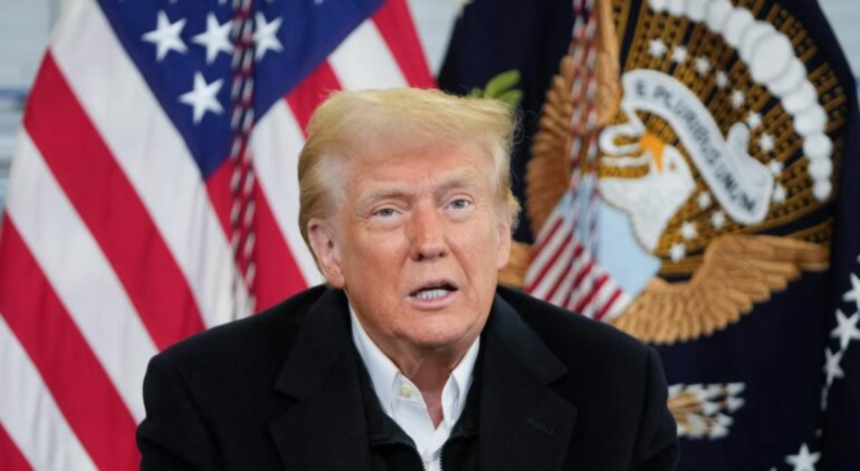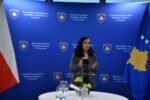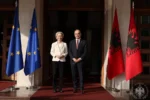President Donald Trump’s decision to withdraw the United States from the World Health Organization (WHO) did not come as a surprise to the organization or the European Union. Experts are now trying to predict what this will mean for global health programs that assist many developing countries.
One day after taking office and returning to the White House, President Trump began the process of withdrawing the United States from the World Health Organization. This is the second time he has done so in less than five years. Many scientists fear that such a move could harm the progress made in the fight against diseases like HIV/AIDS, malaria, and tuberculosis, which have been worked on for decades. There is also concern that withdrawing from WHO could weaken the global defense against new viruses that could cause pandemics.
When Joe Biden assumed the presidency, he immediately blocked Trump’s attempt to withdraw the U.S. from the organization. Asked about the reasons for this decision, while signing the executive order, President Trump stated that WHO had forced the U.S. to bear an unfair financial burden: “The Chinese were paying $39 million, we were paying $500 million. Seems a bit unfair to me. When I left, they offered me to come back for $39 million. So, in theory, we could pay less than that. And when Biden came back, he came back for $500 million. He knew he could come back for $39 million because they wanted us desperately.”
When asked if he valued WHO’s role as the coordinator of the global response to health emergencies, Trump answered affirmatively, but added that this cannot happen by overburdening a country like the United States. In response to President Trump’s statements, WHO spokesman Tarik Jasharevic called for negotiations. “We hope that the United States will reconsider its decision and we look forward to engaging in constructive dialogue to maintain the partnership with WHO,” he said.
The European Commission also urged President Trump to find a solution. “As for the effectiveness of WHO, there is always room for improvement, but we would like to engage in a potential reform of WHO.” President Trump’s decision means halting new funds that the U.S. government sends to the organization, as well as withdrawing and reassignment of federal personnel and contractors working with WHO.
Kent Bus, a health policy expert, predicts legal challenges following Washington’s decision. He says that Trump’s dissatisfaction with WHO is not just about financing, but also about who controls the agency. The most at-risk programs are those related to polio, immunizations, HIV/AIDS, global health security, malaria, as well as those related to maternal and child health. However, according to Bus, the damage goes far beyond individual programs, resulting in the loss of a valuable group of experts.
“It goes beyond the impact on individual programs because of the nature of the organization. It is qualitatively different from any other global health organization. It brings together experts from all over the world who are aware of the best available laboratory evidence,” he explains. But Bus agrees with Trump on one point:
“Trump is right when he says that the global health system, and not just WHO, has an unhealthy dependence on one country, and that is the United States. By definition, this is not multilateralism. All the BRICS countries, including the recently added ones like South Africa, should and must carry a greater financial burden in global health diplomacy and security. And I think we should also look towards the Gulf countries. It’s not just China that is draining the world and taking things for free,” he adds.
Through Trump’s executive order, officials are instructed to “identify trusted and transparent partners both within the United States and abroad to take on programs currently implemented by WHO.” But Bus says creating an alternative is not the solution, especially in the short term.
The executive order also states that the U.S. is withdrawing “due to the abuse that WHO made of the COVID-19 pandemic that originated in Wuhan, China, and other global health crises.” It mentions “the agency’s failure to urgently adopt necessary reforms” and its “inability” to demonstrate independence from inappropriate political influence by WHO member states.
The organization made several costly mistakes during the pandemic, including advising people not to wear masks and statements that COVID-19 was not airborne. The agency officially acknowledged only last year that the virus spreads through the air. During efforts to stop the spread of the coronavirus, WHO also faced its largest sexual abuse scandal in its history. Media revealed that dozens of Congolese women were harassed or sexually assaulted by health workers involved in Ebola control programs. The news agency ‘AP’ discovered that senior managers at the organization were informed of several cases of sexual abuse when they occurred in 2019 but did little to stop or punish the perpetrators. /VOA/







